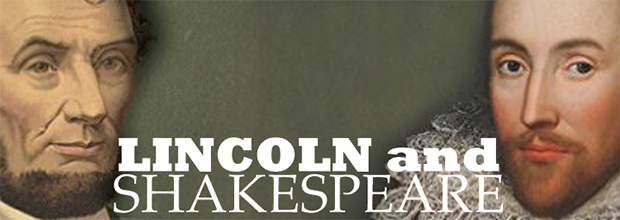Putting Universality Back Into A University Education
- Daniel Valencia
- Mar 18, 2016
- 3 min read

Image used for Dr.Michael Andregg's book "Lincoln and Shakespeare", as well as the event brochure.
A group of around a hundred people gathered in UCI’s Humanities Gateway for the first annual Kirk Davis Jr. Public Shakespeare Lecture. According to the brochure, the lecture (which is named after the most generous donor, Kirk Davis Jr.) “aims to celebrate the artistry and legacy of Shakespeare through presentations that combine scholarship with performance.” The group behind the event is the UCI Shakespeare Center, a group which works to build a stronger relationship between Arts ad Humanities, and also is building its name as the top institution dedicated to the enjoyment of Shakespeare. The Shakespeare Center worked in conjunction with UCI Illuminations, a group with a goal similar to the Shakespeare group, which is to provide students of all majors with opportunities for exposure to the creative arts and culture.
The event was comprised of two speakers, Dr. Michael Andregg and Drama Professor Richard Brestoff. Andregg presented his ideas on the relation that Lincoln and Shakespeare had in literary, rhetorical, and historical terms. Brestoff followed with several dramatic readings of both Shakespeare’s work and Lincoln’s speech.
Dr. Michael Andregg took the podium first with his presentation, covering the topics in his book, Lincoln and Shakespeare. Andregg’s talking points from his book analyzed historical observations to find a link between Lincoln and Shakespeare. Several of the ideas were folklorish and speculative, like the notion that Lincoln developed his appreciation of Shakespeare’s work with a childhood friend who Andregg said “was either the town poet, or the town idiot.” Andregg also discussed how Lincoln's life has been compared to that of Macbeth’s, the famous character from Shakespeare’s play of the same name. He described how both Lincoln’s and Macbeth’s stories involve much ambition, and much death. Andregg then discussed how, even in death, Lincoln was associated with Shakespeare, sharing how a Washington D.C. newspaper, The National Republican, used Shakespeare quotes in articles relating to Lincoln’s assassination and death.
Drama Professor Richard Brestoff was highly animated in his dramatic reading section, presenting numerous readings of Shakespearean characters like Macbeth, Claudius and Richard II. After a particularly fervent reading of the character Shylock, Brestoff stayed the crowds’ acclamatory hums and applause with a raised hand. After pausing briefly, seeming to collect himself, Brestoff began his reading of the Gettysburg address. Needless to say, the crowd which had sat motionless through “Four score and seven years” burst into applause at its completion, coupled with several gasps, and the excited whispers of approval. Brestoff quietly took his seat,without a word.
“I wanted the wings of the writing to help me… In that case it’s Shakespearean, it puts the wind under the wings.” Commenting on his presentation of the Gettysburg Address, Brestoff revealed that he got into his passionate frame of mind by brushing up on his historical context prior to his presentation. “Keyword was testing,” said Brestoff in reference to Lincoln’s line “Now we are engaged in a great civil war, testing whether that nation… can long endure.” Brestoff said the Civil War, and the loss of life, created this dilemma of whether the nation could continue or not, and he allowed himself to understand the gravity of that and used it to channel his emotion for the reading. Brestoff said that he was “—honored to be a part of the event,” and that he wanted to be a part of something that displays “rhetoric that reminds me of the power of Shakespeare.” Needless to say, those who left early missed out.
Michael DeLeon, a Public Health student who was at the event for a General Education class assignment on Shakespeare, said that this particular event interested him as an “Open opportunity for students to get insight.” as well as a chance to “—expand creativity.” Michael was one of the few students to stay through the full event.
The event organizer and co-director of the Shakespeare Center, Julia Lupton, shared her thoughts on the event, saying that she was “Real happy” and “pleased” with the turnout. “Absolutely, a full house.” Lupton said that much of the audience was comprised of donors and community followers, as well as PhD students and drama faculty. But she also talked about how the goal of these events is to provide students with “exposure” to Shakespeare, which is why they worked with the UCI Illuminations group. “We don’t want it to be just for English majors,” Lupton says, “Students go to classes, they don’t go to hear these people.” She understands that many students will never come, and that many who do come will leave, as they did, but the importance is the exposure.




Σχόλια